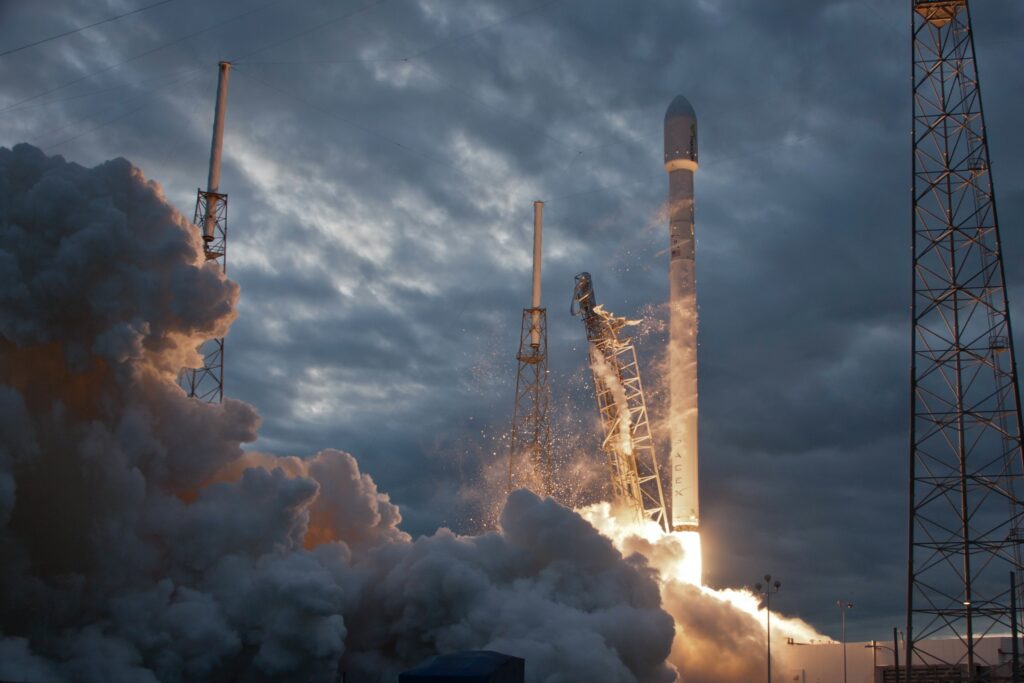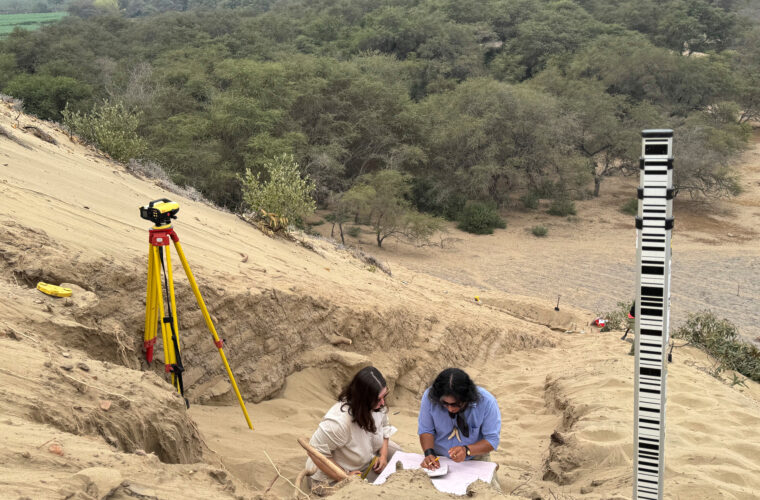Specialising in next generation plasma thrusters, Magdrive aims to usher in a new era in space operations.
Not only do satellites need to be fired into orbit, they also need to be able to re-adjust their position once they are there. This might be done to alter their path to avoid collisions with other satellites, or in order to realign their sensors for a particular task.
Currently, satellites make use of chemical or electrical subsystems for orbital manoeuvre; however, both types of thrusters have their own drawbacks.
That is why, according to Magdrive’s CEO and co-founder Mark Stokes — satellite propulsion is an industry ripe for disruption.
Chemical thrusters have powerful acceleration, but they require large propellant payloads that add huge launch costs to missions. They can also be challenging, or even dangerous, to work with. Satellites price upwards of €25,000 per kilogram to launch, as such, any and all reductions in required mass can improve the bottom line for commercial operations.
This is why some manufacturers turn to highly efficient, lightweight electrical thruster alternatives, which propel ions in place of fuel. This technology produces far higher thrust relative to mass, allowing the use of significantly smaller fuel payloads. However, in real terms, electrical thrusters are weaker than their chemical counterparts, leading to low acceleration and slower orbital manoeuvre speeds.
“Just like the jet engine transformed aerospace, Magdrive will transform the space industry,” he explained.
Magdrive’s miniaturised plasma thrusters make use of superheated high-density propellant contained within magnetic fields — a source of thrust that, according to Stokes, burns 100 times hotter than a conventional rocket.
This improves efficiency so significantly that satellite fuel payloads can be reduced by up to 90%, the mechanical and machine learning engineer explained.
This high-density and tremendous power greatly improve the efficiency of satellite orbital manoeuvres, potentially saving Magdrive’s future customers millions of euros per satellite.
The commercialisation of space is a burgeoning industry with a plethora of new companies and business opportunities. Whether businesses are involved in satellite communications infrastructure, Earth observation, or they simply aim to reduce barriers to entry for other players — satellites are an integral part of their industry.
“Magdrive is the first step-change improvement offering the best of chemical and electric propulsion in a single system,” said Delian Asparouhov of Founder’s Fund, a venture capital group which led a recent seed round in the company.
New frontiers
With increasing numbers of companies taking to orbit, and smaller and smaller satellites becoming available, the scale of the sector is forecast to grow rapidly over the next ten years. Currently, satellite propulsion is valued at $5 billion globally, moving to $20 billion by 2030.
Already a number of high-profile companies have committed themselves to commercialising the space sector. Notable names include Elon Musk’s SpaceX, Jeff Bezos’s Blue Origin, and Richard Branson’s Virgin Galactic.

“Companies are launching mega constellations of thousands of satellites and are seriously looking at orbital manufacturing and asteroid mining,” Mark Stokes explained, adding that these kinds of ambitious projects are currently out of reach until better propulsion technology can be deployed.
As a testament to this space boom, the UK government recently announced plans to build a new state of the art satellite propulsion test facility in North Buckinghamshire, due for completion early 2021.
“Backed by a £4 million government investment, this pioneering UK-based facility will elevate our most ambitious space businesses, enabling them to undertake complex spacecraft engine testing,” explained UK science minister, Amanda Solloway.
The UK space sector is arguably a leader in satellite propulsion. With a growing space manufacturing sector and plans for UK spaceports, the national satellite propulsion field is set to grow substantially in the coming years.
By evolving industry propulsion capabilities, Magdrive will add to this by enabling entirely new markets that, according to Stokes, “are uncapped in value.”
The seed-stage company aims to become the primary provider to government agencies, such as the European Space Agency, and to work closely with industry prime contractors, such as Lockheed Martin, which is currently supporting the company’s technology development.
Investor confidence
Magdrive closed a €1.5 million seed funding round in December led by Founders Fund, with participation from Entrepreneur’s First, 7percent Ventures, and Luminous Ventures.
The company lab is based at the European Space Agency Incubator in Harwell, Oxfordshire, and previously raised €80,000 in grant funding. Magdrive collaborates with the University of Southampton, making use of its state-of-the-art test facilities.
The seed funding will be used to move the start-up into an engineering model in order to be shortlisted for customer missions. Magdrive is also expanding and looking to add new hires to its team.
“Magdrive will be working with customers to integrate with their satellites and to test this hardware in space,” Stokes said, adding that this is already possible as the company has working prototypes.

The company benefits from advisors coming from Imperial College London and the Satellite Application Catapult, a technology and innovation centre in the UK.
Mark Stokes is a masters graduate of Imperial College London with experience in deeptech and aerospace start-ups. His co-founder and Magdrive’s CTO, Thomas Clayson, has a PhD in plasma laboratory astrophysics. He has experience constructing fusion reactors and the largest pulsed power machine in Europe, with 16 publications in fields directly relevant to core aspects of Magdrive’s technology.
The company is supported by the UK Space Agency, the European Union Regional Development Fund, and Innovate UK.



